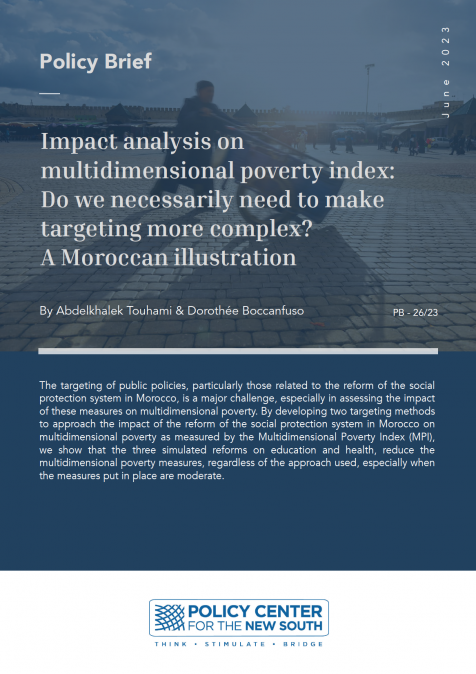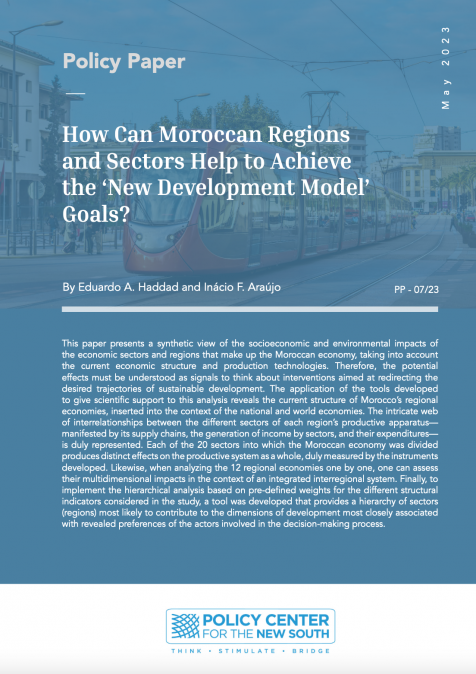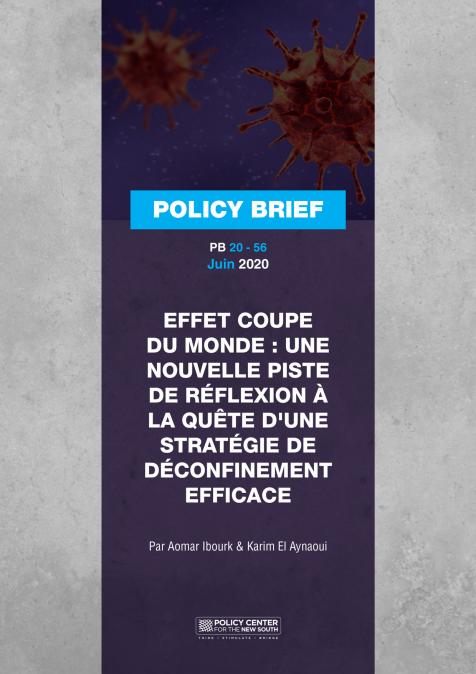Interview avec Uri Dadush, Senior Fellow , au sujet des inégalités au Maroc
September 30, 2019
Notre Senior Fellow a répondu aux questions suivantes : 1/ Dans la région du Moyen-Orient et d’Afrique du Nord, en 2016 la part du revenu global des 1% les plus riches était 2,6 fois plus important que celle des 50% les plus pauvres. Sur quels leviers agir pour réduire les inégalités dans la région MENA ? 2/ En dépit des progrès réalisés dans les domaines de la croissance économique et du développement social, les inégalités demeurent élevées au Maroc. Quelle est votre explication? 3/ Les plus hautes autorités du Royaume insistent sur l’importance de la formation professionnelle. Pensez-vous que ceci va dans le sens de la réduction des inégalités ?
Speakers

Uri Dadush
Non-Resident Senior Fellow
Uri Dadush is non-resident Senior Fellow at the Policy Center for the New South, where he served as Senior Fellow from its founding in 2014 until 2022. He is Research Professor at the School of Public Policy, University of Maryland and a non-resident scholar at Bruegel. He is based in Washington, DC, and is Principal of Economic Policy International, LLC, providing consulting services to the World Bank and to other international organizations as well as corporations. Previously, he served as Director of the International Economics Program at the Carnegie Endowment for International Peace and, at the World Bank, was Director of the International Trade, Economic Policy, and Development Prospects Departments. In the private sector before that he was President of the Economist Int ...








